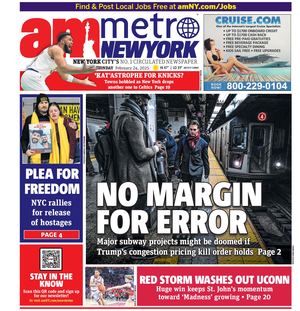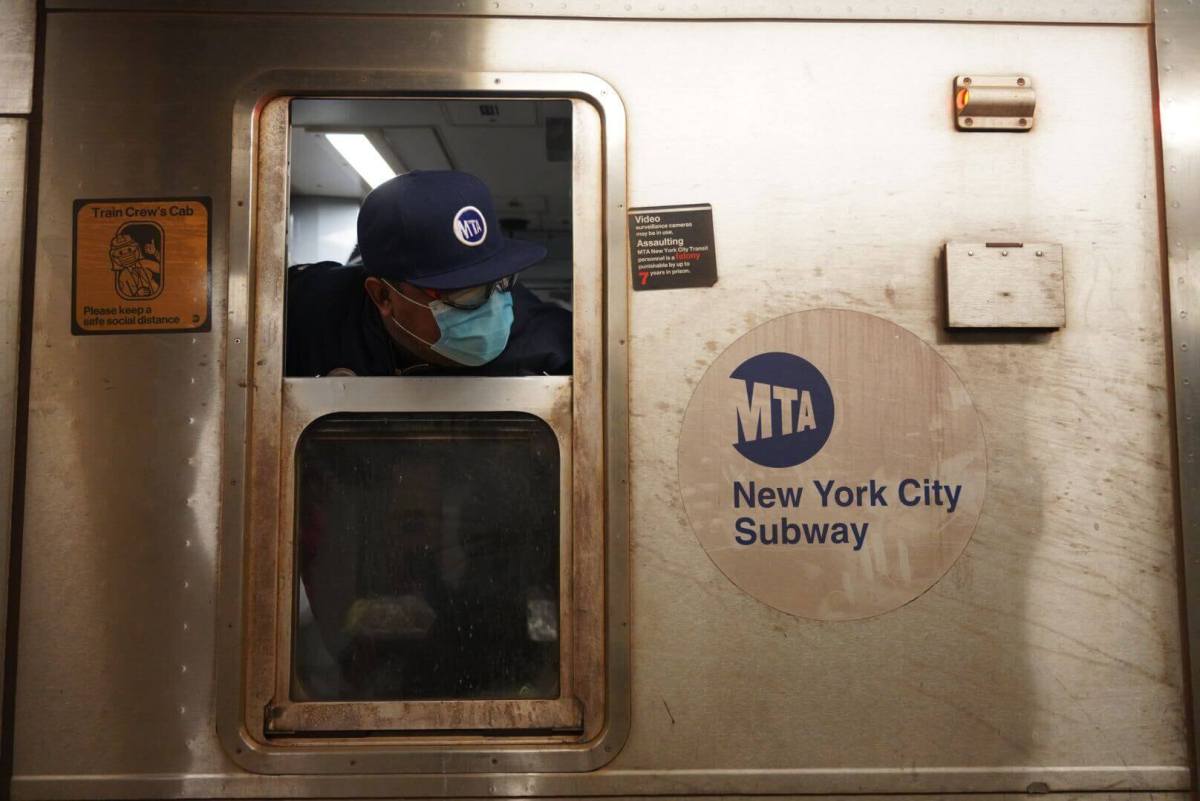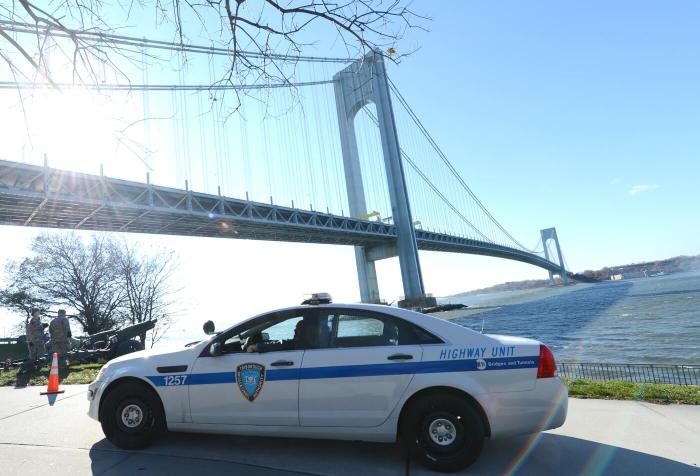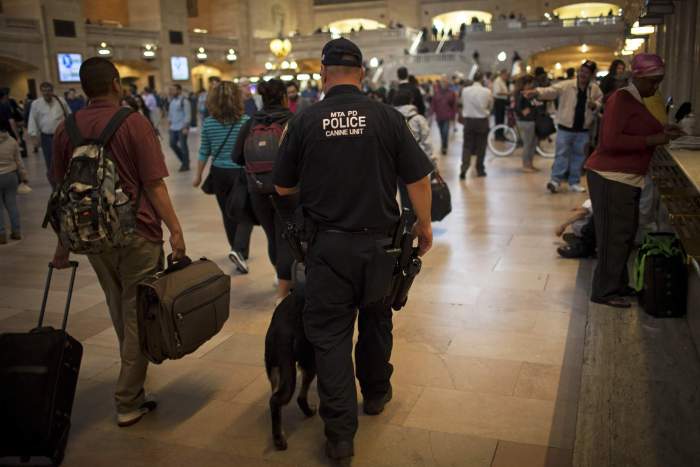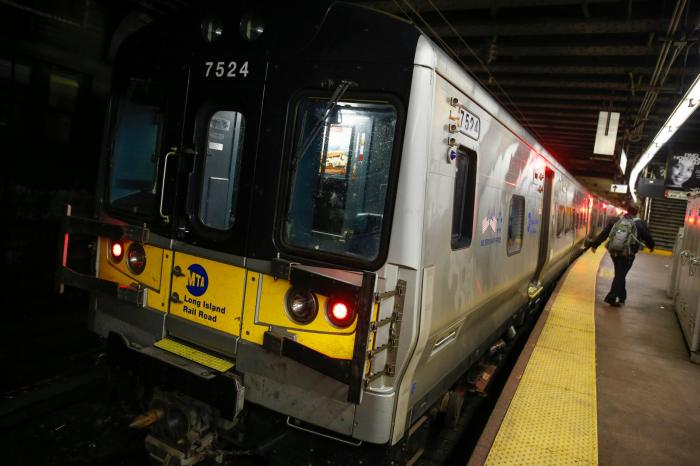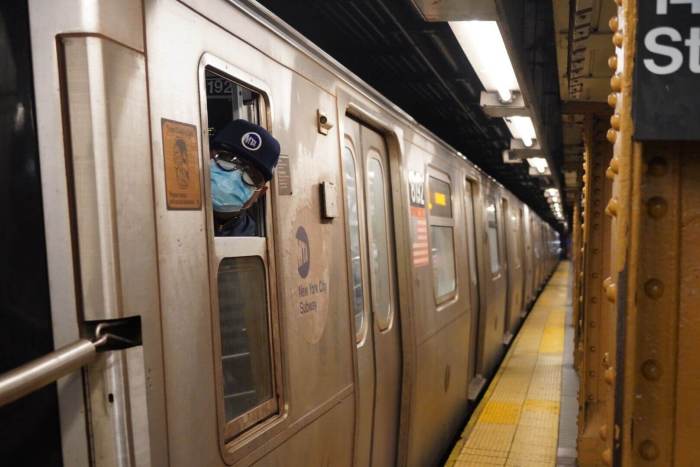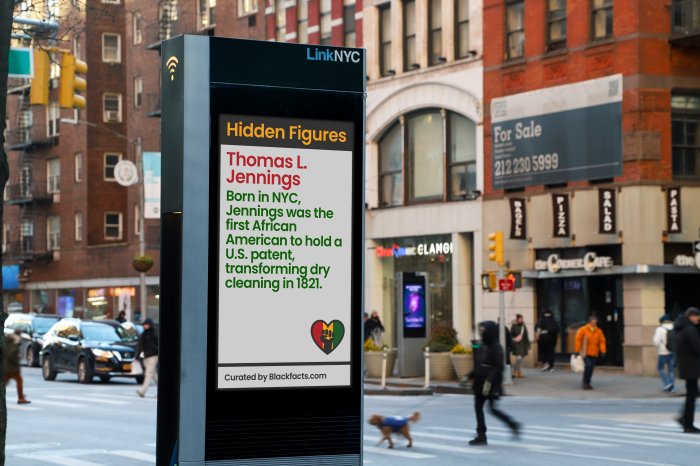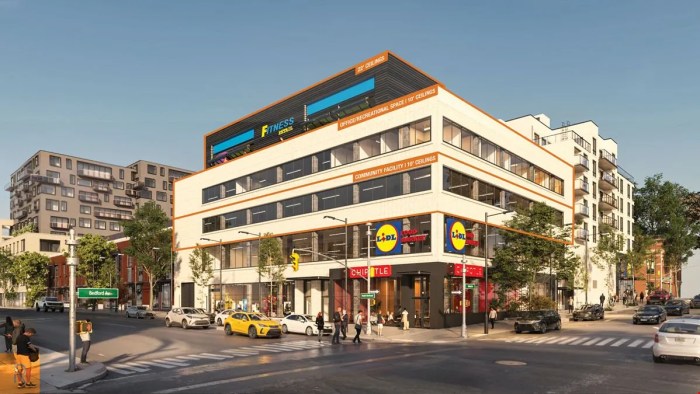The Metropolitan Transportation Authority’s multi-million-dollar effort to overhaul its timekeeping system to prevent overtime fraud is “at risk,” warned the agency’s internal watchdog in a report Tuesday.
The MTA has already poured $31 million into transitioning to an electronic system for employees to clock in and out of the job, but workers are using the new system less than earlier this year, according to the MTA’s Inspector General Carolyn Pokorny.
“As the MTA’s watchdog, I must continue to sound the alarm on the importance of integrating timekeeping and payroll systems at the MTA,” said Pokorny in a statement. “The integration is a vital component of the MTA’s overtime reforms, which my Office has demonstrated is critically needed through exposing bad actors and emphasizing the need to decrease wasteful, unverifiable overtime across the MTA. Unless the MTA wants to undo hard-fought progress, the integration must happen.”
The OIG chalked up the lack of progress to “shifts in organizational priorities” and “turnover in project leads” at the Authority.
At three out of five MTA agencies employees were swiping in and out of work less often with new the electronic system in July and August compared to April and May, the OIG found in its quarterly report on the timekeeping upgrades.
There was a 10% drop on the Long Island Rail Road, 9% less at New York City Transit’s Department of Subways, and a slight drop of 4% at Bridges and Tunnels, while Metro-North Railroad and the Buses division saw slight increases.
The OIG looked into the sharp decline on the LIRR and found that it was partly due to a miscalculation on the dashboard, but noted the dip should have been noticed by MTA management.
“We are concerned that if management is actually using the dashboard to monitor employee compliance with the swiping requirement, as they should be, this error should have been caught and corrected sooner,” reads the report.
Bus workers maintain the lowest rate of all agencies at just 58% of employees using the electronic setup.
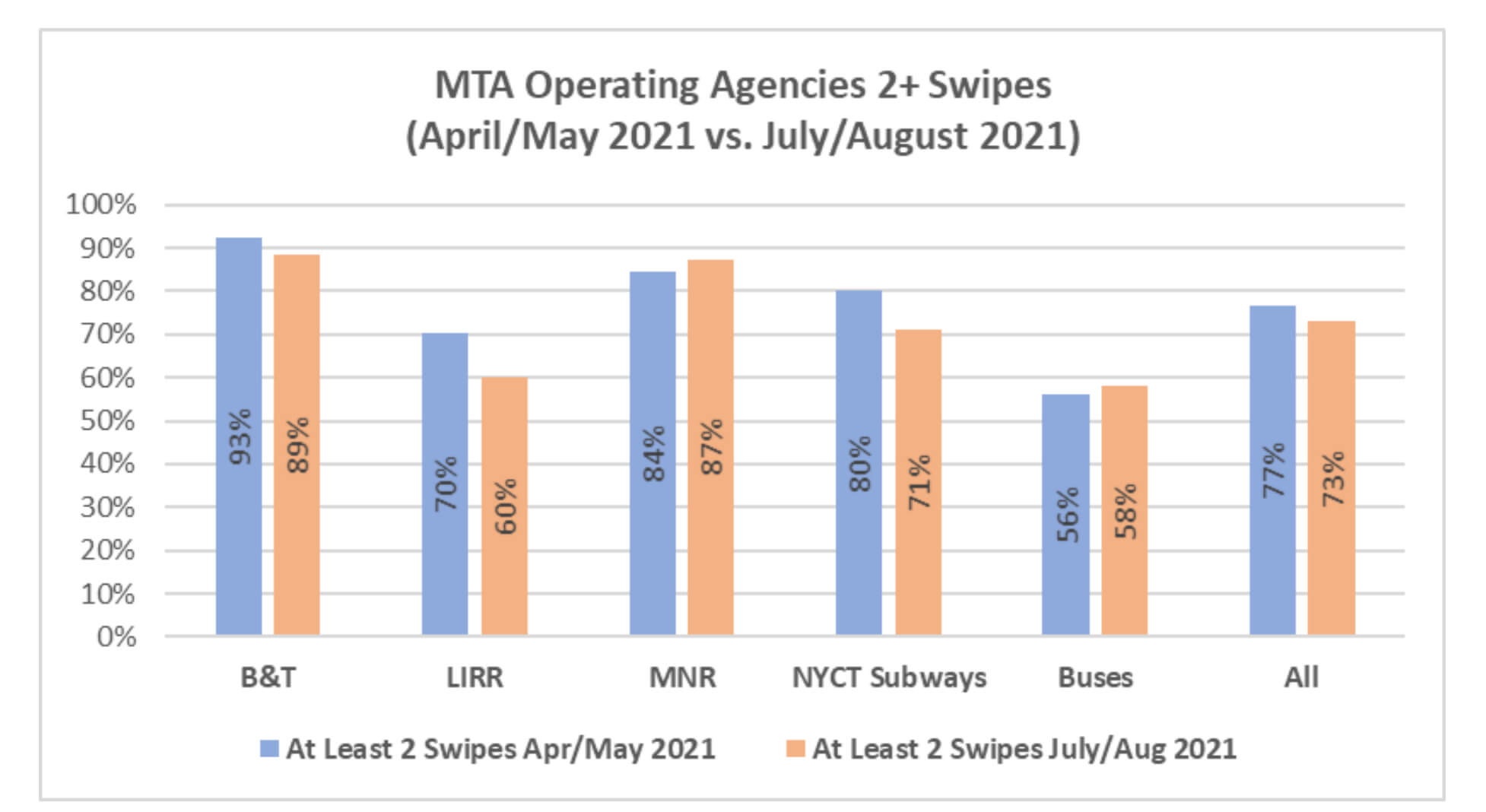
After audits in 2019, the OIG’s office and law firm Morrison & Foerster LLP released 19 recommendations to curb overtime fraud, including installing biometric time clocks by company Kronos across the entire MTA and standardizing overtime approval procedures.
The inspectors found that the agency at times relied on the honor system for granting overtime and that verifying whether an employee had actually worked extra hours could be “deeply burdensome” or “even impossible.”
In response, the MTA created an Overtime Task Force which spent more than $31 million on hardware, software, and consultants to implement these changes, but four recommendations have yet to be adopted as of October, the OIG found.
Specifically, the MTA needs to tie the electronic swipes directly to workers’ payroll, the report states.
“A fully integrated modern timekeeping-payroll system would streamline payroll production, reduce manual transactions, provide management with more effective tools to control overtime costs in close to real time, and help to deter waste, fraud, and abuse,” it says.
Another uncompleted task is keeping consistent electronic records of who can work overtime, and details of the job like shift supervisor names, location and start and end times for the overtime.
One of the reasons for delays there are “staffing constraints” the report notes, echoing challenges at the mass transit agency that has struggled to return to full service due to persistent crew shortages.
The agency has also not given the OIG any new due dates for implementing recommendations and the report urges MTA to either see the reforms through or admit they’ve given up.
“If the MTA is to reap all the benefits of a modern timekeeping-payroll system that it has already made a significant investment in of both time and money, MTA management must continue to commit to the timekeeping-payroll integration,” reads the report. “Alternatively, if management plans to abandon the effort this far into the project, then it should be transparent about that decision with the Board and public.”
An MTA spokesman said the measures already in place have already led to an almost $250 million decrease in overtime costs between 2018-2020 and that the agency plans to cut overtime costs by nearly $1 billion over five years.
“The MTA continues to address how best to achieve full integration of the Kronos payroll system,” said Michael Cortez in an emailed statement. “Measures already implemented have resulted in annual overtime expenditures dropping by hundreds of millions of dollars and we are committed to additional material reductions in overtime costs.”
